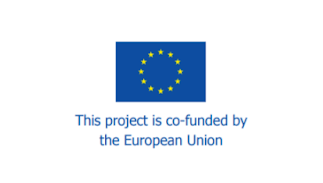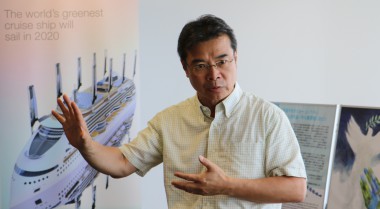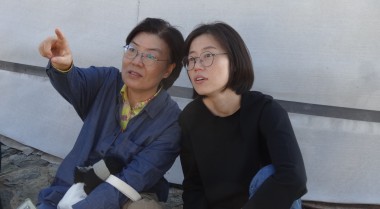Every voice matters for peace on the Korean Peninsula: Enkhsaikhan Jargalsaikhan on the role of Mongolia as the nuclear-weapon-free-state in Northeast Asia and what we can learn from it
In this series, we highlight the diverse voices of people passionately building peace on the Korean Peninsula as part of the Ulaanbaatar Process (UBP). Named after the Mongolian capital in which it was officially launched in 2015, the Ulaanbaatar Process is a unique civil society dialogue for peace and stability in Northeast Asia (NEA). This story features Enkhsaikhan Jargalsaikhan, Chair of Blue Banner and one of the initiators of the UBP, who tells us how civil society in NEA can open broader dialogue on nuclear disarmament until it reaches official institutions.
As an international lawyer and diplomat who represented his country at the United Nations, Ambassador Enkhsaikhan Jargalsaikhan was directly involved in the political process leading Mongolia to a nuclear-weapon-free state in 1992. With a lifelong dedication to nuclear disarmament, Enkhsaikhan is engaged in GPPAC NEA and the UBP, building civil society dialogue for peace on the Korean Peninsula, with the vision of NEA becoming a nuclear-weapon-free-zone.
***
Mongolia has only 3.4 million people - we are a small country, located between two great nuclear powers, Russia and China. Much in politics depends on where your country is geographically located and what its past is.
Mongolia was a part of the Soviet Bloc, with Soviet troops deployed on our territory. Something important happened in 1969, which influenced Mongolian choices and its politics to this day. The Soviets were trying to make preemptive strikes against China and China was aware of this. The USA, also militarily present in the region, wouldn’t just observe the situation and we knew that WW3 could be very close. If Russia and China were to confront each other, we also knew that Mongolia would be flattened. That deeply threatening situation brought us to aim for Mongolia as a nuclear-weapon-free zone and to seek security insurance for this status from the five nuclear weapons states, including Russia and China.
Confidence building of small states in nuclear disarmament
That wasn’t easy, of course. First, we had to get the attention of the great nuclear powers and show them that even smaller states could play an important role in international peace and security. Second, we had to show that a nuclear-free Mongolia might be also in the interest of the great powers and we had to argue well on that point. We tried to be insistent and persistent as much as possible. It wasn’t a situation like when you announce something and then just forget it - no, we took it very seriously. At that time rivalry among the nuclear states was strong, while suspicion and mistrust dominated their politics, so we realized that the confidence of small states in NEA could be very important in providing a positive political climate for dialogue between or among the states of the region.
We had to do a lot of hard diplomatic work and we managed it. Mongolia gained the internationally recognized status of nuclear-weapon-free-state in 1992, quite a precedent in international affairs. What we had to do was to preserve a good balance in our relations with Russia and China and to ensure that our national security would not be guaranteed by an alliance with one or another or with some third country.
Now, on the 30th anniversary of Mongolia’s status as a nuclear-weapon-free state, we need to discuss how the case of Mongolia can help us make further steps in nuclear disarmament of NEA.
NGOs, unlike governments, have more freedom of expression of their views and more freedom of searching for mutually beneficial solutions. That is how GPPAC has helped us and brought together NGOs from throughout NEA to discuss issues of peace and stability in our region. It was very inspirational when Kofi Annan said that NGOs could be a superpower, with a focus more on prevention than the consequences of armed conflicts. Blue Banner believes that prevention is the best medicine, and the best medicine is to get rid of nuclear weapons.
The power of open dialogue in civil society
All of us participating in the UBP agree that the first condition for peace in NEA is to stabilize the situation on the Korean Peninsula – that is the key issue. Sustainable peace can be achieved only with nuclear disarmament of the Korean Peninsula and the entire NEA region. Unfortunately, the great nuclear powers still worry about how that would affect their interests or interests of their allies, and how an eventually united Korea would position itself, with Russia or China or with Western countries. The governments are stuck in their positions, so we in the UBP are trying to have an ongoing dialogue on all issues relevant to our region, which could also sensibilize the governments to be more open to new political solutions and peaceful dialogue.
The Cold War divisions in NEA are still present, where “us” versus “them” rival politics and military threats dominate. In this complicated situation, the UBP manages to promote dialogue, work on confidence building and break down the barriers of “us” and “them”. We can bring representatives from the DPRK into our dialogue, which many other dialogue forums have avoided, which is a mistake. It is not easy, we all know that, but without representatives from North Korea, we don’t have complete trust and confidence building. We hope that the UBP, with its people-to-people direct contacts and open discussions, might lead to broader regional discussions reaching out to the governments too.
Sustainable peace in NEA needs regional inclusive security and cooperation mechanisms. We have held various discussions with representatives from the EU, and agree that while the EU model could be efficient for Europe, NEA would probably need something different having in mind its historical and current circumstances. The opinions and views of EU experts on issues of conflict prevention and security systems could help us address our own issues efficiently. We need to make our views heard by other countries, other people and other civil societies. That will amplify our ideas and perspectives to a larger audience and then it might not be easy for the governments to ignore them. The UBP is a platform where we articulate our views and visions for stable peace and security in the NEA region, which are then amplified through GPPAC, as well as through our partnerships with the EU and other international organizations. That is how we become a power.

This article was prepared in the frame of the project "Ulaanbaatar Process: A Civil Society Approach to Building Peace in Northeast Asia", implemented by Peace Boat and Blue Banner, in cooperation with the GPPAC Foundation, co-funded by the European Union.

